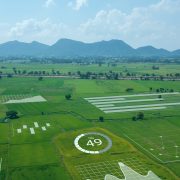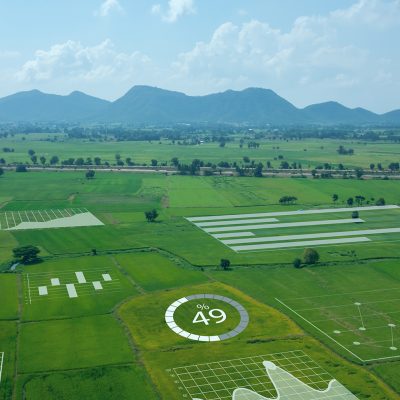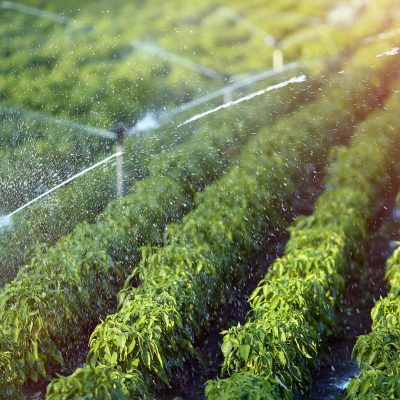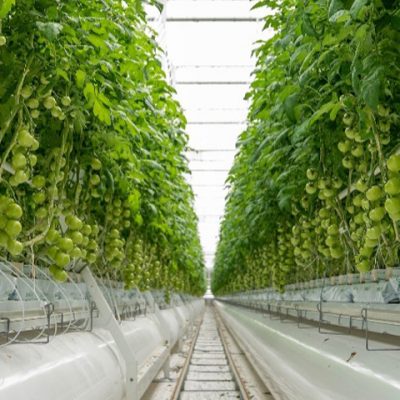Though Al Dahra is mainly a world leader in grains, we keep an eye on major trends in food technology. With rising concerns about climate change, consumers worldwide are shifting away from meat towards new protein sources. That’s created a major gap in the market for tech entrepreneurs and food inventors. Trialing novel protein sources ranging from plants, fungi, and even edible insects, the aim is to reduce the overall demands of protein on the planet. Indeed, one calorie of animal protein needs ten times the fossil fuel energy as one calorie of plant protein.
Though Al Dahra is mainly a world leader in grains, we keep an eye on major trends in food technology. With rising concerns about climate change, consumers worldwide are shifting away from meat towards new protein sources. That’s created a major gap in the market for tech entrepreneurs and food inventors. Trialing novel protein sources ranging from plants, fungi, and even edible insects, the aim is to reduce the overall demands of protein on the planet. Indeed, one calorie of animal protein needs ten times the fossil fuel energy as one calorie of plant protein.
Though Al Dahra is mainly a world leader in grains, we keep an eye on major trends in food technology. With rising concerns about climate change, consumers worldwide are shifting away from meat towards new protein sources. That’s created a major gap in the market for tech entrepreneurs and food inventors. Trialing novel protein sources ranging from plants, fungi, and even edible insects, the aim is to reduce the overall demands of protein on the planet. Indeed, one calorie of animal protein needs ten times the fossil fuel energy as one calorie of plant protein.
We’re fans of Future Mince – a revolutionary mince made from vegetables and invented in Canada. You’ll find this delicious vegan alternative over at Food Crowd.
With labs now investigating lab-grown meat, the days of grass-fed cows and grazing chickens seem to be fading. While that’s a landmark change for our dinner plates, it’s an important step in reducing our fossil fuel consumption.
How eCommerce is Reshaping the Food Industry
Here at Al Dahra, we’ve always been at the cutting edge of eCommerce technology in the food industry. Already, our business specializes in the latest tech to transport and sell to clients all over the world. But, while we’re dealing in big orders, a smaller revolution is occurring at aisle level.
Following the COVID-19 pandemic, food supply chains were pushed to their limits. New innovations in direct-to-customer (D2C) distribution models became the solution to the difficulties of social distancing. Meanwhile, ghost kitchens – which allow businesses to set up delivery services– spread rapidly, leading to a boon for takeaway food services.
However, while non-perishable goods can be shipped less urgently, foodstuffs require rapid and precise logistics. That meant closer ties between food manufacturers and those at the forefront of eCommerce. We know because we also run a fantastic eCommerce site, Food Crowd. Delivering meat and vegetables sourced globally directly to your door is a challenging job. But one that we relish. Using our end-to-end supply chain management expertise, we’ve turned Food Crowd into a hub, connecting local communities through food. Our aim: to bring the freshest food directly from the farm to your plate.
Part of the trend has led to consumers expecting something different than what they’re used to. They want something special. Something you cannot buy in a store. That’s why we launched our food boxes. Whether you’re buying dairy, fruit and veg, or even a mixed box, you don’t need to wade through page after page selecting ingredients. Food Crowd has got you covered.
Is Digital Food Management the Future of Food?
These days Big Data and AI are everywhere. No industry can escape its transformative power. Al Dahra understands this better than anyone. Moving more than 2 million metric tons of food annually, we know that data is the key to a well-oiled machine. But the scale of information we relied on in the past is nothing compared to what’s coming.
From farm to door, food producers and distributors – like Al Dahra – harness Big Data to better appreciate market fluctuations and disruptions, anticipating losses and reducing waste. The recent pandemic has thoroughly tested such systems. But other disruptions like the Suez Canal blockage or droughts and famines are also factored into such data analytics.
Whether we’re trading our grain and animal feed on global markets or using real-time inventory tracking through our store Food Crowd, we’re committed to embracing the latest technology. We know it will reduce waste and minimize our environmental footprint.
One such technology is the blockchain. Originally invented for use in cryptocurrencies, the blockchain – a decentralized record of all transactions – is now being investigated to improve food safety, quality, and distribution. IBM Trust, for example, is working towards monitoring food from farm to store using blockchain technology. It aims to reduce food-related fraud. Meanwhile, in China, blockchain technology is being combined with counterfeit labels to verify authenticity. As more products are sold online than in-store, trust in the blockchain is likely to grow. Here at Al Dahra, we’re watching its future with fascination.



